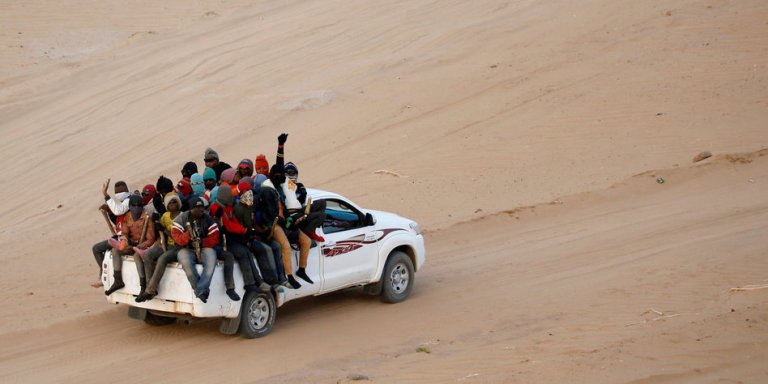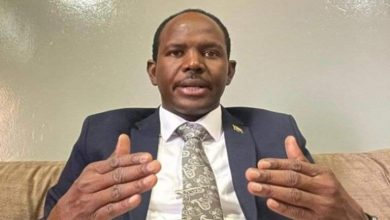
Sudan Events – Agencies
The border triangle area between Sudan, Libya, and Egypt is witnessing deteriorating humanitarian conditions, as migrants coming from Sudanese cities and those returning from Libya are suffering from harsh circumstances, alongside a significant rise in travel costs.
The owner of transportation services in the triangle, Al-Hamri, told “Darfur24” that hundreds of Sudanese families have been stranded during their journeys to and from Libya.
He pointed out that community initiatives, in cooperation with the administrative unit “Martyr Ismail Bilal,” have been able to establish a temporary shelter center to provide some humanitarian aid, but the needs still exceed the available resources.
He added: “We were able to assist some families in returning to Sudan through financial support from donors, but there are still families in need of help.”
Al-Hamri also mentioned that ticket prices have seen a significant increase due to the rise in fuel prices and the Libyan government’s prohibition on the export of fuel to the border.
The cost of traveling from the triangle to Kufra rose from 180,000 Sudanese pounds to 250,000 pounds, and from the triangle to Khaneq, it increased from 75,000 pounds to 150,000 pounds. Ticket prices between Khaneq and Dongola fluctuate according to agreements with vehicle owners.
He continued: “The cost of travel from Al-Nuhud to the triangle reached 400,000 pounds, despite the long distance and the difficulties travelers face.”
He explained that some Sudanese from Darfur, Kordofan, and Khartoum are taking an alternative route via Al-Geneina, Adree, Abshi, and Al-Tina in Chad, reaching Libya through Niger, despite the risks and the exorbitant costs that can exceed one million Sudanese pounds per passenger. This journey takes more than 12 days to reach the city of Sabha in southern Libya, after which travelers continue to Benghazi in eastern Libya, or Misrata and Tripoli in western Libya.
Shadha Ibrahim, a Sudanese woman returning from Benghazi, shared her struggle with her husband, who had been unable to find stable work for six months, forcing her to return to Sudan with her five children.
She said that she reached the triangle after two days of travel but got stranded while waiting for a financial transfer from her husband to complete her journey to the city of Al-Nuhud.
In this context, Mubarak Al-Tayeb Abdel-Rasul, a merchant in the Triangle market, confirmed that the migrants are suffering from a lack of water and the high cost of living in the new shelter center.
He stressed that the border triangle is unsuitable for families to stay in due to the absence of health facilities and the spread of environmental diseases.
He urged citizens not to travel to the triangle unless they have enough money to leave the area quickly, to avoid staying in inhumane conditions.
According to the latest statistics from the UN High Commissioner for Refugees, Libya Office, in February, 230,000 Sudanese refugees were registered in Libya since the outbreak of the conflict in Sudan.
The Libyan city of Kufra receives about 400 Sudanese refugees daily, urgently needing food, shelter, and clean drinking water, according to the UN Refugee Agency.



